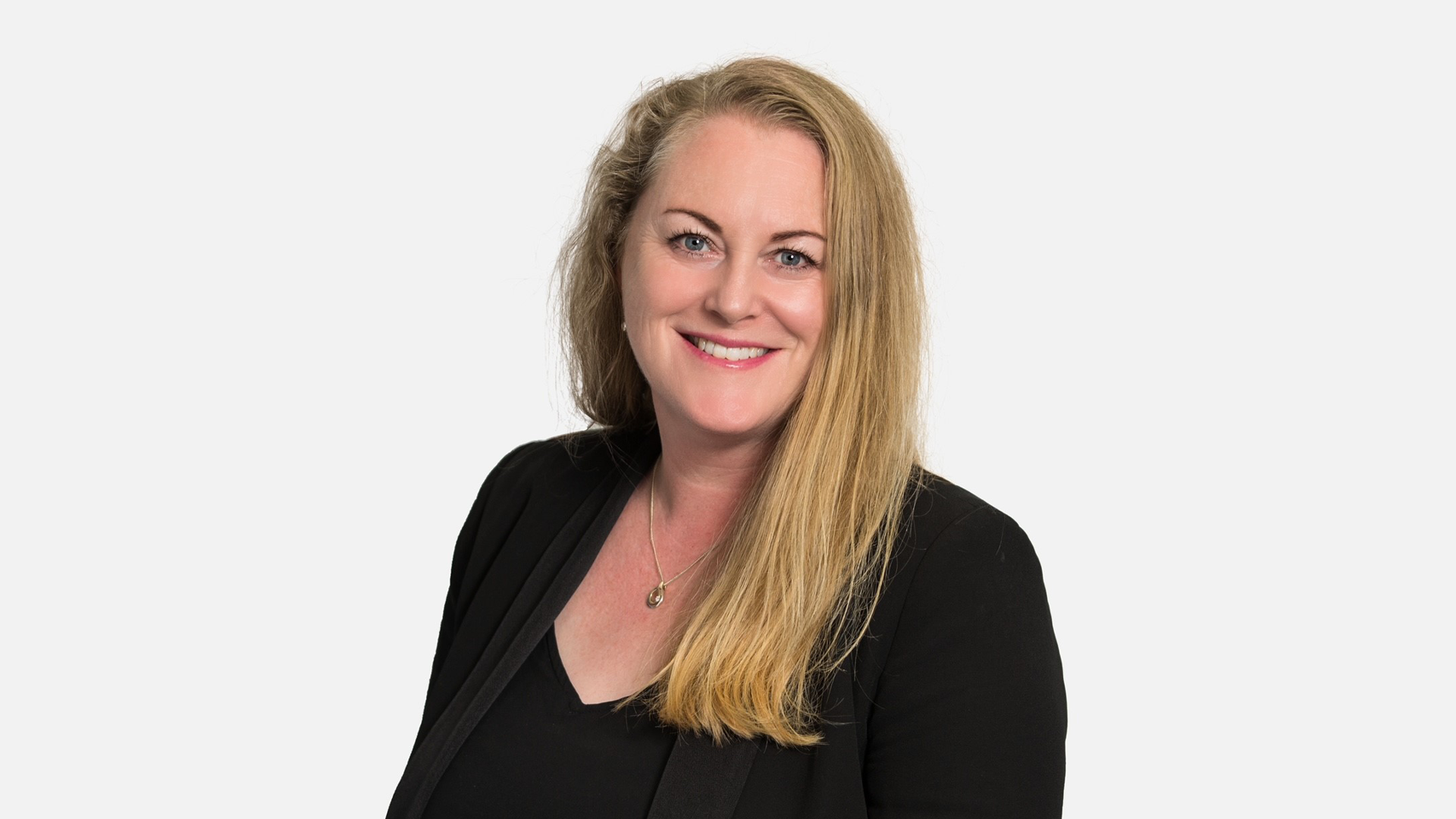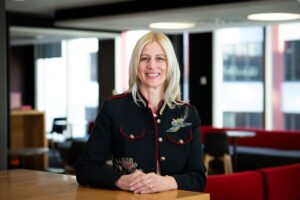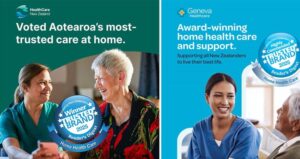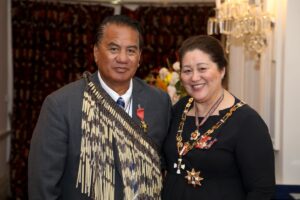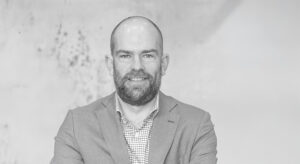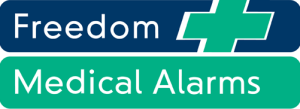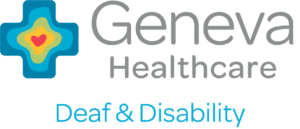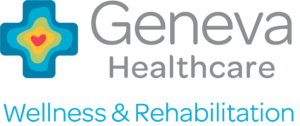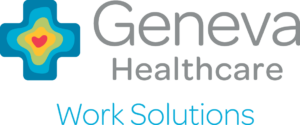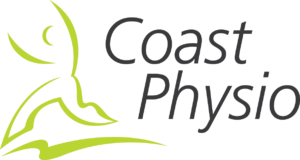We are excited to welcome Jane Kelley to the New Zealand Health Group whānau. Stepping into the CEO role, Jane brings a wealth of health sector experience, and her passion for diversity, inclusion and an equitable response will be instrumental as New Zealand Health Group continues to grow.
A true Highlanders supporter, Jane went to high school in Dunedin and then attended Otago University before heading off to Japan (more about that later on). You can now find her on a lifestyle block just out of Wellington with her husband, daughters, dog, cats, chickens, and ponies.
We asked Jane a few questions to learn more about her background and her views on the opportunities for the home and community support space to extend the continuum of care and the wraparound services to create a whānau- centric approach.
What does a whānau-centric approach mean to you?
People’s health or disability journeys are not singular. People often have multiple touch-points and varying degrees of complexity with their health which is why it’s essential that their journey takes in them as a whole person and that it reflects them and their needs, and where appropriate those of their whanau.
What attracted you to New Zealand Health Group?
The progressiveness and nimbleness of the organisation is genuinely astounding. There’s a real willingness to learn, innovate, and build and an appetite for taking calculated risks to make gains. What’s impressive is the company’s ability to move and adapt really quickly; they appreciate and fully understand the ‘fail fast’ concept – start a project, immediately gather feedback, and then determine whether to continue or take a different approach. Not all companies have the same agility or flexibility.
The other element for me is I’m in awe of our home and community support workers and their commitment to keeping vulnerable people who live in their own homes, well. They are the health or disability support worker, who often spends the most time in a person’s home, which means they’re the ones who notice any change in the persons health and or behaviours. That’s a critical role in our wider health system and very underestimated in terms of the skills required to deliver the level of care provided.
Can you describe your leadership style in one word (or maybe three)?
I actually struggled with this because I was like, only one word. I think I’d sum it up by saying I’m tenacious, purposeful and I’m a good listener.
You were 2IC to the Director General of Health through the Covid-19 pandemic. Can you tell us a little more about this and if you can, give us some insight into the good, the bad & everything else in between?
First and foremost, it was an incredible privilege to have worked alongside Dr Bloomfield and many other amazing and incredible people, not just within the health ministry but also across the wider health system. Many of these people worked tirelessly in the background and, up until today, still remain unseen yet are still going, which is astounding. Ultimately, I feel really proud of what we achieved.
The bad would probably have been the hours. Sometimes we were there until two, three or even four o’clock in the morning, going home for a quick sleep and then back again. I’ve never experienced something so intense that lasted so long.
The good. For me, it’s the sense of community and the learning that if we stick together and help each other out, it’s amazing what we can achieve. I still remember stopping and taking a breath one day and thinking, wow, this community and what they are doing for each other is phenomenal.
On a personal level, what did the pandemic teach you?
Personally, it taught me to be bold and not be afraid to be courageous. Surround yourself with good people because the adage he tangata he tangata he tangata is so true. Also, resilience and knowing when you need to pause and reflect and take a moment. I don’t mean to sound cheesy but it’s all so true. Good people, resilience, be courageous, don’t be afraid. If you really set your mind to it, it’s incredible what you can achieve.
I’m sure you’ve been asked a lot about your involvement with Covid, so we’ll move on. Can you give us some insight into your prior professional experience that led you to now leading New Zealand health Group?
I’ve worked in the health, disability and social sector for the last 25 years in a variety of different positions, from ground level through to executive. I’ve had experience in the public system, in private companies, I’ve worked in a DHB, for government agencies, and in primary care. So I feel like I’ve got a really good sense of how different parts of the health and disability system can work together to achieve a whānau-centric approach.
What was it about health and disability that interested you?
For me, being in health and disability is about making a difference and doing something meaningful for others, the act of service . While I was in high school and at university, I worked in several different rest homes doing a variety of different roles. Our elderly are very special people and it’s important we look after them because, without them, we wouldn’t be where we are today. The experience of helping people and making a difference has been a huge influence on why I want to be part of health.
Can you share your views on the changes and reforms to New Zealand’s health and disability system?
In my view, the reforms are an excellent opportunity to change how we achieve successful health and disability outcomes for all New Zealanders. It’s important to recognise that the way we think about a person’s wellness today is very different to say 50, or 60 years ago; the shift to where we need to be as a country is significant and will take time.
I guess one thing that we need to work through is that while it’s great that the reform journey has started, the reality is that people don’t stop getting sick, diagnosed with a disability, injured, or old. No one can wait 3 – 5 years for the change, so we need to figure out how to ensure all of these people who need help right now, get what they need. This comes back to the earlier question of why I was attracted to New Zealand Health Group, I think it’s because we have the ability to make a difference tomorrow for someone who is vulnerable and needs support and help right now.
That segways perfectly into our next question. How do you see New Zealand Health Group evolving over the next little while?
I really believe that our progressive, innovative approach will lead and show the wider health and disability system how to increase access to, and the delivery of, high-quality home, community and rehabilitation services. We are also well placed to ensure we can support the person and their whanau’s mental health and wellbeing with the extensive wrap around services that New Zealand Health Group offers. It’s quite an exciting position to be in as a company.
What do you think your most rewarding accomplishment has been to date?
That’s easy – growing my three girls.
Outside the office. How do you enjoy spending your time?
Currently, I live on a lifestyle block just out of Wellington. I spend a lot of time with my husband, my three girls, my dog, two cats, chickens, and my ponies. I’m very, very lucky to wake up to a beautiful rural view every day. I love cooking and I love to travel and experience new cultures.
Can you name one person who inspires you?
It would have to be my two grandmothers. No matter what, they could always see the best in people and they always knew how to have a good laugh. And when I think about them, they’re just magical people and they inspire me to be the best that I can be no matter what.
What piece of advice would you give your 25 year old self?
Accept the things you can’t change and don’t sweat the small stuff. Focus on the things that matter. Surround yourself with good people. Dream big. Be courageous. And have fun doing it. And be kind. It doesn’t take much.

